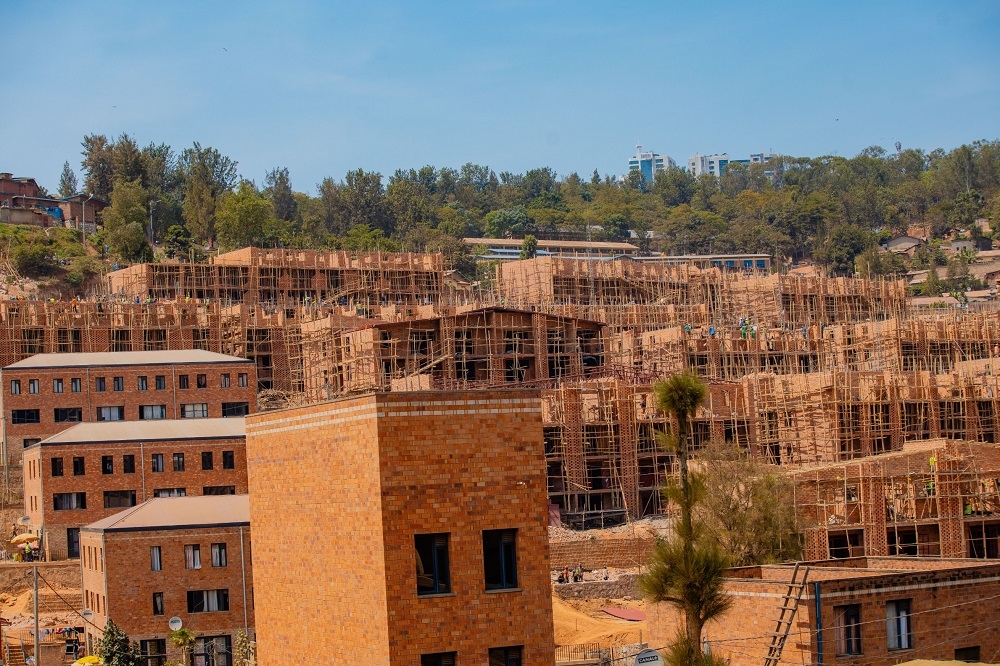More eco-parks and sports facilities will be established to promote healthier lifestyles and relaxation in Kigali.


Josephine Malonza, a Rwanda-based architect and urban designer, refers to the upcoming Nyabugogo bus terminal as a "mega project” which every city would like to have in order to support its current and future needs.
Scheduled to be constructed from 2025 to 2027, the multi-million dollar terminal is one of the big infrastructure projects lined up in the next two to five years as Kigali continues to position itself among impressive places on the continent.
In this article, The New Times takes a look at the top five projects that will make Kigali better in the next few years.
A bigger and better bus terminal in Nyabugogo
Nyabugogo, Rwanda’s main hub for cross-border road travel is set to get a bigger and better bus terminal to facilitate movements of people within Kigali and connection with the rest of Rwanda and neighbouring countries.
The bus terminal will have a modern complex replacing the current bus stop, transforming it into a better hub for travelers. The project will be carried out by the city administration in partnership with the World Bank, and is expected to commence in 2025 and be completed in 2027.
As part of the project, Nyabugogo bus terminal will be upgraded into a multi-modal terminal station that will also have space for travel-related business. It is understood that as the project gets underway, bus services will be temporarily relocated to another part of the Nyabugogo area to allow the construction works of the new terminal to go on.
More suburbs to be transformed into model villages
More suburbs of the city will be transformed into model villages with asphalt roads and other essential infrastructure, a move that Malonza describes as a strategy for sustainable rural settlement development.
ALSO READ: Inside Kigali’s plan to reduce informal settlements to 20%
Last year, City of Kigali got $70 million (over Rwf 90 billion) funding to upgrade four unplanned settlements namely Mpazi in Nyarugenge District, Gatenga in Kicukiro District, Nyagatovu and Nyabisindu both located in Gasabo District.
"The new projects are part of an ongoing initiative by the City of Kigali as informal settlement upgrading projects. Their main objective is improved provision of basic infrastructure,” Malonza said.
Model villages will get basic infrastructure such as roads, pedestrian ways, drainage, street lights, electricity, health centres, markets, schools, water and other services.
Malonza noted that basic infrastructure is the most impactful aspect as it comes with multifaceted benefits economically, socially and ecologically, boosting people's well-being and livelihoods.
She also pointed at the impact of rehousing under such projects, saying it gives opportunity to people to continue living in the same neighbourhood, something that keeps their social fabric intact.
Rwf 67 billion wholesale market in the special economic zone
In order to improve the local horticulture value chain, there is a plan to open a new wholesale market in Kigali, and it is expected to be the largest in the East African region.
Worth $51.6 million (more than Rwf 67 billion), the market will be located in the special economic zone.
Besides processing 180,000 tons of horticultural products, the new market will improve logistics planning, quality control, and storage of fruits and vegetables. Such improvements will include cleaning, grading, drying, and storage of horticultural products to reduce post-harvest losses and increase export earnings.
Upgrade of roads, implementation of dedicated bus lanes
The city of Kigali is working on the construction of 45.1 kilometres of roads, a project that was originally scheduled to be completed by the end of the 2023/24 fiscal year.
The project, which is partly done, includes construction of roads including Mulindi-Gasogi-Rusororo-Kabuga, Miduha-Mageragere, Busanza-Muyange, and so on.
The city also plans to construct 300 kilometres of feeder roads, saying it will ease public transport challenges.
Kigali also plans to put in place Dedicated Bus Lane (DBL) systems during peak hours in some of the busy public transport corridors.
With this, it is expected that the average waiting time for buses during peak hours may reduce from 30 to 15 minutes.
Alphonse Nkurunziza, a senior lecturer of transport planning, engineering and urban structure at the University of Rwanda, said DBL is a key strategy for improving the city’s public transport system "because buses will move on schedule” and won’t be delayed by traffic jam.
Construction of more eco-parks and sports facilities
More eco-parks and sports facilities will be established to promote healthier lifestyles and relaxation in Kigali.
In February, the Rwanda Environment Management Authority (REMA) embarked on activities to rehabilitate five degraded wetlands to turn them into ‘recreational areas’ in the city.
The wetlands include Kibumba (68 ha), Nyabugogo (131 ha), Rugenge-Rwintare (65 ha), Rwampara (65 ha) and Gikondo (162 ha).
Faustin Vuningoma, an environment activist and coordinator at Rwanda Climate Change and Development Network (RCCDN), told The New Times that protection of swamps and marshlands through the establishment of eco-parks is very important because marshlands act as filters for the environment.
"Swamps and marshlands are like kidneys for the environment,” he said.
He added that eco-parks will also provide space for people who want to relax as well as contribute to bringing more tourists to the country.
ALSO READ: Kigali's wetland rehabilitation project set to generate over 100,000 green jobs
The main objectives of the five wetlands’ rehabilitation projects include enhancement of the city’s landscape and development of recreational activities, flood mitigation, improvement of wetlands’ biodiversity, and water quality improvement.
The activities to construct the eco-parks on about 500 hectares are estimated to cost $80 million (approx. Rwf102 billion).


